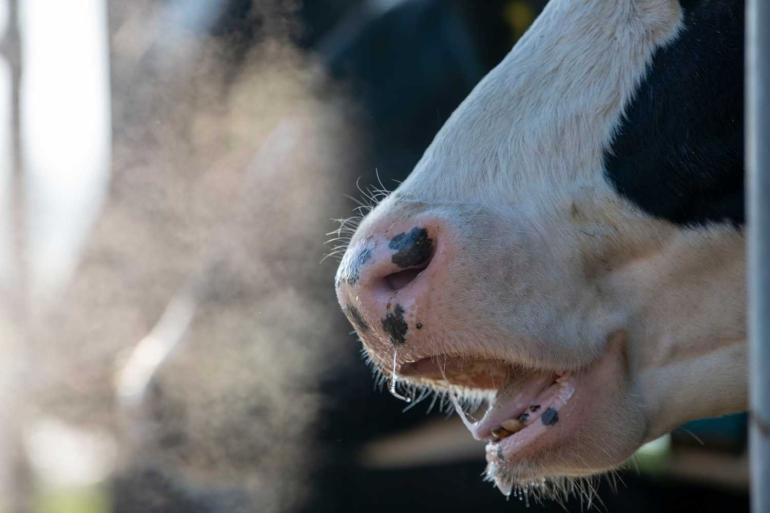Methane

Methane Saved
Genetics for a more sustainable future
- Reliable data from 14,000 cows
- Methane emissions are heritable
- A sustainable solution through breeding
What is methane and why is it important?
Methane (CH₄) is a powerful greenhouse gas produced during cattle digestion. During digestion in the rumen, cows produce methane, which is released into the atmosphere through belching. Although methane has a shorter lifespan than CO₂, it has a much stronger warming potential. Reducing methane emissions therefore directly contributes to combating climate change and helps the dairy industry achieve its sustainability goals.
Why is methane reduction important for the sector?
The dairy industry is under pressure to lower its carbon footprint. Methane emissions play an important role in the climate debate, and governments are setting increasingly strict requirements for emission reduction. By proactively working on solutions, the sector retains control and demonstrates responsibility. This not only helps to reduce social criticism, but also creates new market opportunities. More and more, sustainable milk is being rewarded by processors and consumers, which can contribute to a stable income model for farmers.
Breeding for methane reduction is possible
After several years of research, through the Climate Smart Cattle Breeding
project, by CRV, Wageningen University & Research (WUR), and FrieslandCampina, co-funded by the Ministry of Agriculture, Nature and Food Quality (LVVN), a solution has been developed to permanently reduce methane emissions from cattle.
By selecting the right bulls and cows, you as a dairy farmer, can lower methane emissions using the methane reduction breeding value, without compromising milk production, health, or longevity.

Why is this relevant for you as a dairy farmer?
Breeding for methane reduction can offer multiple benefits for your dairy farm:
- Produce more sustainably: Breeding for lower methane emissions means a smaller environmental impact without extra investments.
- Be future-ready: Sustainability requirements are becoming increasingly strict. By taking steps now, you stay ahead in the sector.
- Dairy processors and retailers: The supply chain is increasingly focused on reducing the CO₂ footprint of milk. By breeding for methane reduction, you align with the broader trend towards more sustainable milk production – something that can strengthen your farm economically.
Want to start breeding for methane reduction?
Cows that emit less methane? It's possible! Here you find the Methane Saved factsheet and view suitable bulls in the online catalogue or contact your breeding specialist and start breeding for methane reduction today.


 Reliable data from 14,000 cows
Reliable data from 14,000 cows